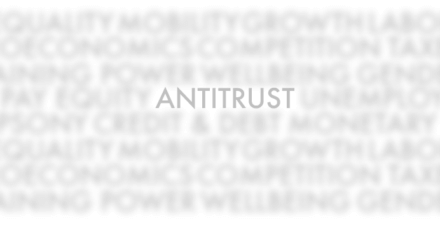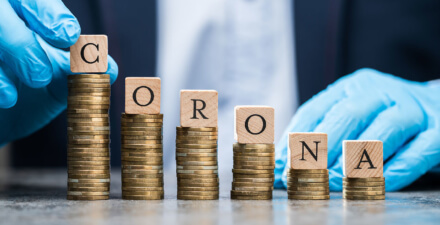Brad DeLong: Worthy reads on equitable growth, October 20–26, 2020
Worthy reads from Equitable Growth:
1. Humans are wired to believe that all kinds of bad things are catching, and thus you should avoid close contact with people who have them. In our modern economy, this applies to the unemployed. Most of the fear of hiring people who have been or are unemployed is not “rational” statistical discrimination, but rather this monkey brain predisposition. It is very damaging to the economy. Read Peter Norlander, “Addressing long-term U.S. unemployment requires confronting the stigma against the unemployed amid the coronavirus recession,” in which he writes: “I and … Geoff Ho … Margaret Shih … and Todd Pittinsky … examined the psychological roots of employer discrimination against the unemployed … Stigma against unemployed workers operates like other psychological prejudices and biases, is unjustifiable on productivity grounds, and occurs nearly instantaneously to workers losing their jobs.”
2. This is going to be very good. You should go to this, virtually that is. Please attend “Equitable Growth’s Antitrust Transition Report Event: “A virtual conference on November 19 to discuss the release of Equitable Growth’s antitrust transition report … Antitrust enforcement has failed to protect the competitiveness of the U.S. economy … Federal antitrust enforcers in the U.S. Department of Justice’s Antitrust Division and the Federal Trade Commission have been criticized for being too lax, and courts have been criticized for incorrectly limiting the reach of the antitrust laws. Equitable Growth’s upcoming transition report is the work of a committee of academics, legal experts, and former government officials, assessing the antitrust landscape and providing their recommendations for the next administration’s antitrust enforcement priorities to correct these failures.”
Worthy reads not from Equitable Growth:
1. Heather Boushey assesses herself as having gone five-for-five in her predictions made last March. She is right, as are her steps to deal with the coronavirus recession. Read her “Economic inequality made the U.S. more vulnerable to the pandemic,” in which she writes: “I made five predictions about the US economy in 2020. We would be hit harder … U.S. states and localities with paid sick days and family and medical leave policies would see fewer transmissions of the coronavirus … Mandated sick leave reduces the rate of seasonal flu by as much as 40 percent … Transmissions would be higher because high medical costs … would cause many workers to fear going to the doctor … The recession would be deeper and more protracted because our social support system is one of the worst among developed countries … We would experience the recession more deeply because policymakers don’t understand that the economy depends on people. The economy needs people to stay healthy so they can work and to have the resources to consume … We need to contain the coronavirus. It’s shocking that the world’s leading economy still does not have in place a comprehensive plan for testing, tracking and tracing. We also need to renew the relief for workers, families and small businesses that expired at the end of July and keep it in place until we recover fully. Plus, we need to give every worker access to a safe working environment, paid family leave, paid sick leave and health insurance.”




